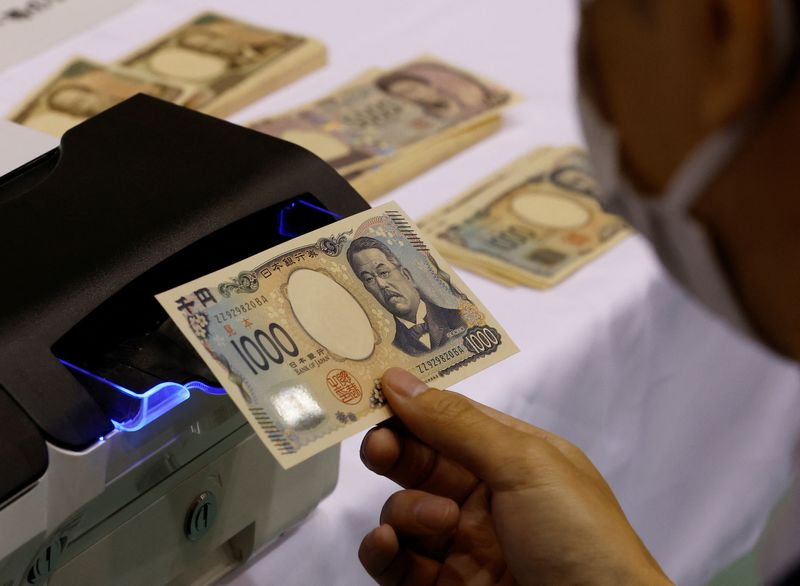Leika Kihara and Kentaro Sugiyama
TOKYO (Reuters) – Japanese Prime Minister Fumio Kishida said on Thursday the government would not rule out any options to address excessive movements in the foreign exchange market, underscoring Tokyo’s determination to enter the market if it deems the yen’s fall to be excessive.
“It is important that currencies move steadily to reflect economic fundamentals,” Kishida said at a news conference when asked about the yen’s recent fall to its lowest level in three decades.
“We will monitor currency movements with a high degree of urgency and respond accordingly, without ruling out any options to deal with excessive currency movements,” he said.
His remarks echoed those of Japan’s top currency diplomat Masato Kanda on Wednesday as the yen hit a 34-year low against the dollar amid expectations that the Bank of Japan will slowly raise interest rates, thereby maintaining a wide gap between Japanese and U.S. rates. .
The dollar briefly hit 151.975 yen on Wednesday, above the 151.94 level at which Japanese authorities intervened to buy the currency in October 2022.
On Thursday it lost some ground to 151.370 yen.
The sharp decline in the yen came despite the Bank of Japan’s decision last week to end eight years of negative interest rates, as traders focused more on its dovish message suggesting another rate hike would be some time away.
Following the end of negative rates, many BOJ policymakers saw a need to take their time phasing out ultra-loose monetary policy, a survey of opinions at last week’s meeting showed on Thursday.
“As the yen fell to a new 34-year low against the dollar, the Treasury signaled that intervention in foreign exchange markets was inevitable,” said Marcel Thiliant, head of Asia-Pacific at Capital Economics.
“However, the yen will certainly not receive much support from Japanese policymakers as inflation is likely to fall short of, rather than exceed, the Bank of Japan’s forecasts.”
Data due on Friday will likely show annual core inflation in Japan’s capital, considered a leading indicator of national trends, slowed to 2.4% in March after rising 2.5% in February, according to a Reuters poll.

Japanese policymakers have historically favored a weak yen because it helps boost profits for the country’s big producers.
But the yen’s sharp fall recently has added to Tokyo’s headaches by inflating the cost of raw material imports, hurting consumption and retail profits.


